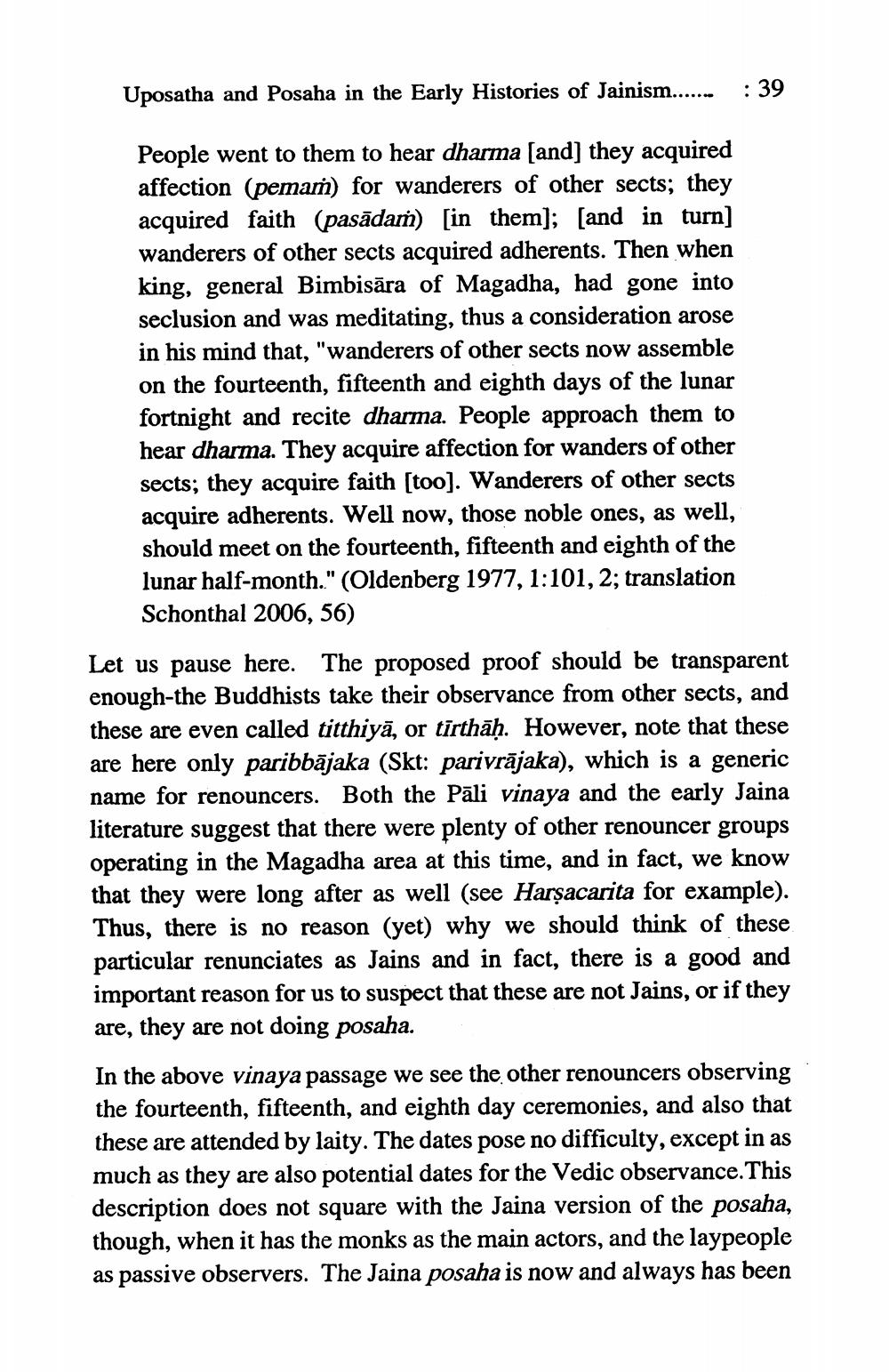________________
Uposatha and Posaha in the Early Histories of Jainism......
: 39
People went to them to hear dharma [and] they acquired affection (pemaṁ) for wanderers of other sects; they acquired faith (pasādaṁ) [in them); (and in turn] wanderers of other sects acquired adherents. Then when king, general Bimbisāra of Magadha, had gone into seclusion and was meditating, thus a consideration arose in his mind that, "wanderers of other sects now assemble on the fourteenth, fifteenth and eighth days of the lunar fortnight and recite dharma. People approach them to hear dharma. They acquire affection for wanders of other sects; they acquire faith (too]. Wanderers of other sects acquire adherents. Well now, those noble ones, as well, should meet on the fourteenth, fifteenth and eighth of the lunar half-month." (Oldenberg 1977, 1:101, 2; translation Schonthal 2006, 56)
Let us pause here. The proposed proof should be transparent enough-the Buddhists take their observance from other sects, and these are even called titthiyā, or tīrthāḥ. However, note that these are here only paribbājaka (Skt: parivrājaka), which is a generic name for renouncers. Both the Pāli vinaya and the early Jaina literature suggest that there were plenty of other renouncer groups operating in the Magadha area at this time, and in fact, we know that they were long after as well (see Harşacarita for example). Thus, there is no reason (yet) why we should think of these particular renunciates as Jains and in fact, there is a good and important reason for us to suspect that these are not Jains, or if they are, they are not doing posaha.
In the above vinaya passage we see the other renouncers observing the fourteenth, fifteenth, and eighth day ceremonies, and also that these are attended by laity. The dates pose no difficulty, except in as much as they are also potential dates for the Vedic observance. This description does not square with the Jaina version of the posaha, though, when it has the monks as the main actors, and the laypeople as passive observers. The Jaina posaha is now and always has been




